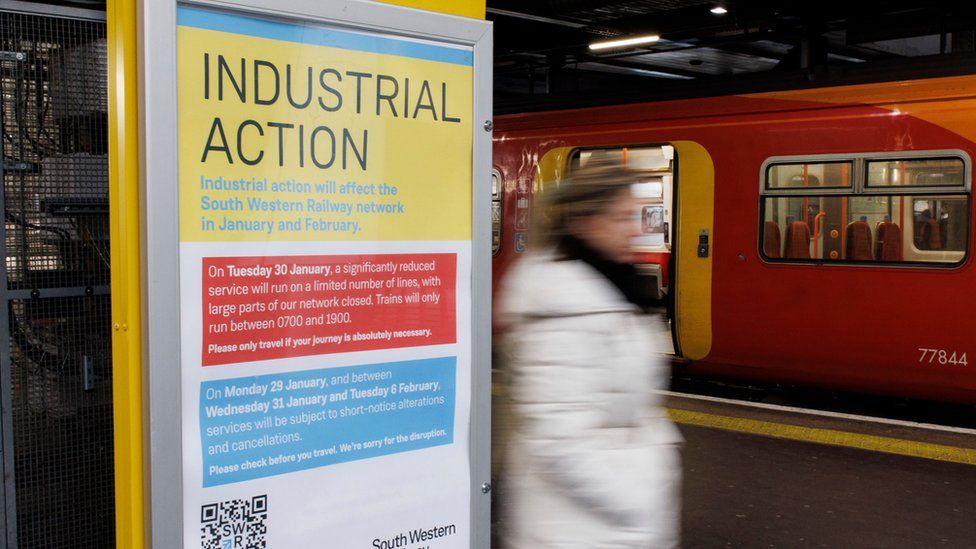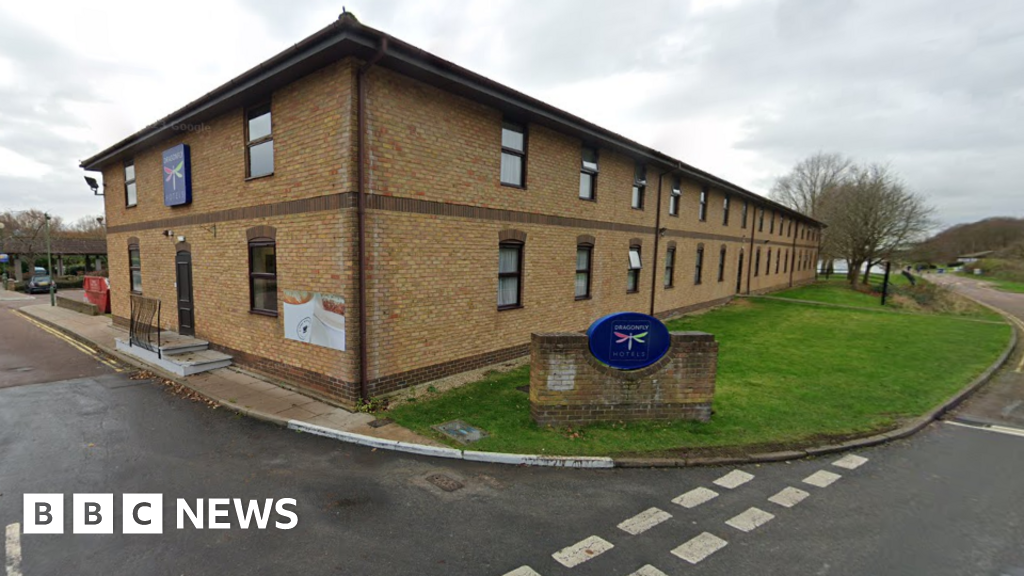ARTICLE AD BOX
 Image source, EPA
Image source, EPA
By Kate Whannel
Political reporter, BBC News
Rishi Sunak is disappointed train operators have not used a new law aimed at enforcing minimum service levels during strikes this week, No 10 said.
Last year, the government changed the rules in order to allow train companies to require enough people to work during strikes to run 40% of normal services.
However, this power will not be used during the upcoming industrial action by trade union Aslef.
No 10 said it was up to the operators "to effectively manage their services".
"We have been as clear as possible that they should be ready to use all powers available to them to reduce the impact of rail strikes on passengers."
Unions have strongly opposed the introduction of minimum service levels and Aslef has warned it would respond to any enforcement with more strikes.
The trade union's general secretary Mick Whelan described the rules as "forced labour" and "a stain on our society".
He told the BBC he was not surprised train operators had not used their new powers saying "the companies didn't want to do it... nobody knows if it can be done safely."
Aslef had announced five strike days starting from 5 February in response to LNER exploring the introduction of minimum service levels. However those extra strike days were cancelled when the operator rowed back on its threat.
An industry source told the BBC that implementing minimum service levels is tricky as it means co-ordinating a 40% timetable with all the other operators in a short space of time.
That didn't mean minimum service levels would never be used, but not this time, the source said.
Conservative MP Caroline Nokes has expressed concern about the new law. Speaking to Politics Live she said: "The stark reality is that the legislation clearly isn't working, it isn't delivering what Grant Shapps promised in enabling people to get to work.
"I don't know whether that means going back to the drawing board, whether it means amendments, but it does seem to be farcical that we were expecting this to work. It hasn't."
Image source, PA Media
Image caption,Mick Whelan (centre) says the new rules are "a stain on society"
Asked if the prime minister was disappointed that train operators had not implemented minimum service levels, Downing Street said: "Yes, it's something that we and the public expect them to use.
"We've been repeatedly been clear that this legislation is available for train operators to use.
"It's something the rail operators called for many months ago and the public would rightly expect them to be used if strike action is taking place."
The Strikes (Minimum Service Levels) Bill was introduced last year amid a wave of industrial action, as workers called for pay to keep pace with the rising cost of living.
The bill allowed ministers to set minimum service levels for rail, health, fire and education services, as well as border security and nuclear decommissioning.
In December, the government announced that the equivalent of 40% of normal timetables should operate during strike action, allowing priority routes to stay open.
Labour has said it would repeal the legislation if it wins the next election.
Image source, EPA-EFE/REX/Shutterstock
Image caption,Demonstrators gathered outside Parliament when MPs debated the bill last year
The industrial action will run from Monday 29 until Tuesday 6 February with Aslef members refusing to work overtime between those days.
This may cause some cancellations and delays, but the more severe disruption will take place on strike days between Tuesday 30 January and Monday 5 February.
Unlike Aslef, the RMT union is not taking part in the industrial action.
Last November their members, including guards and ticket office staff, voted to accept a pay offer including a backdate pay rise of 5% for 2022-23 as well as job security guarantees.
However, talks with the RMT over future pay deals and working practices are continuing.

 9 months ago
44
9 months ago
44








 English (US)
English (US)